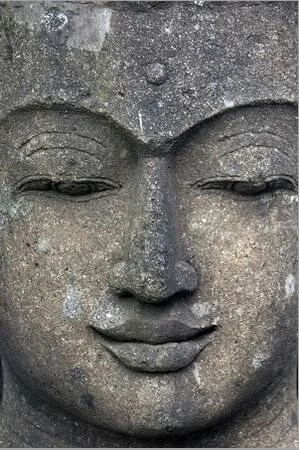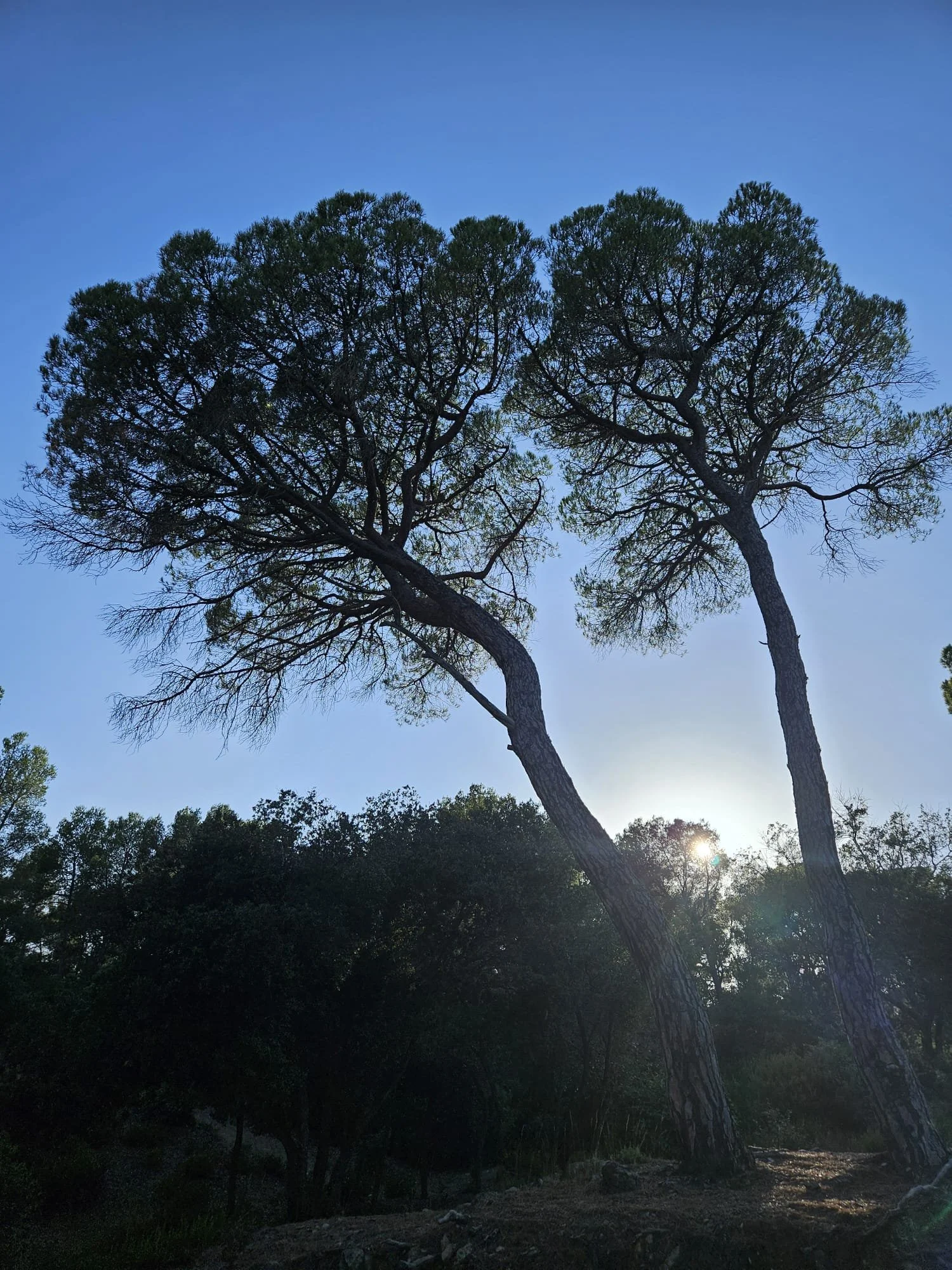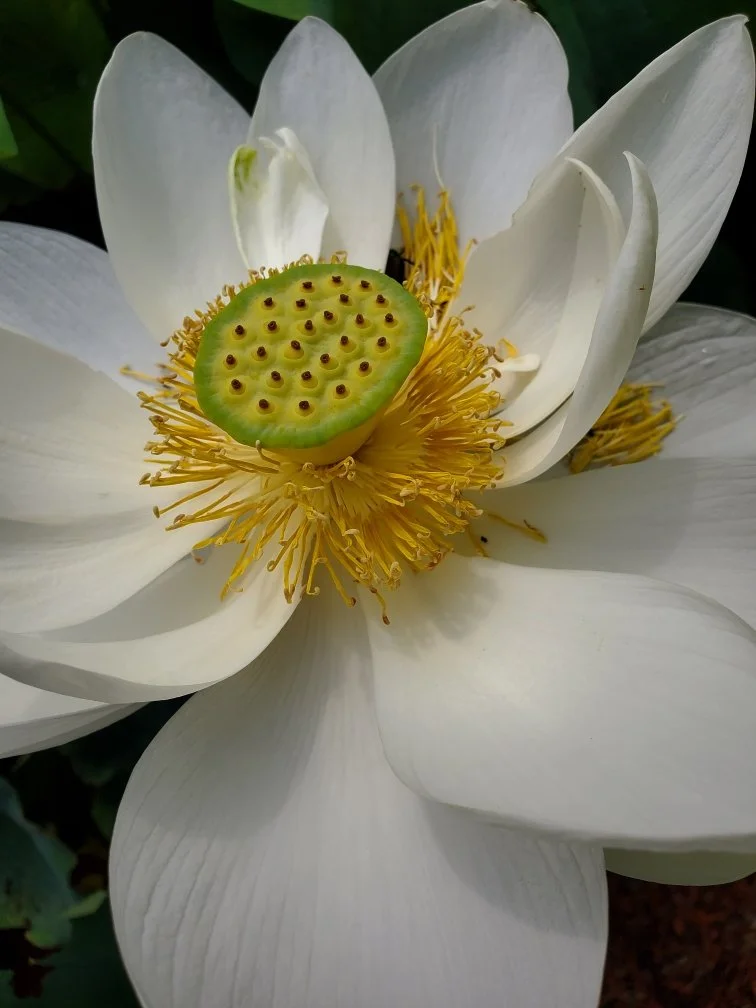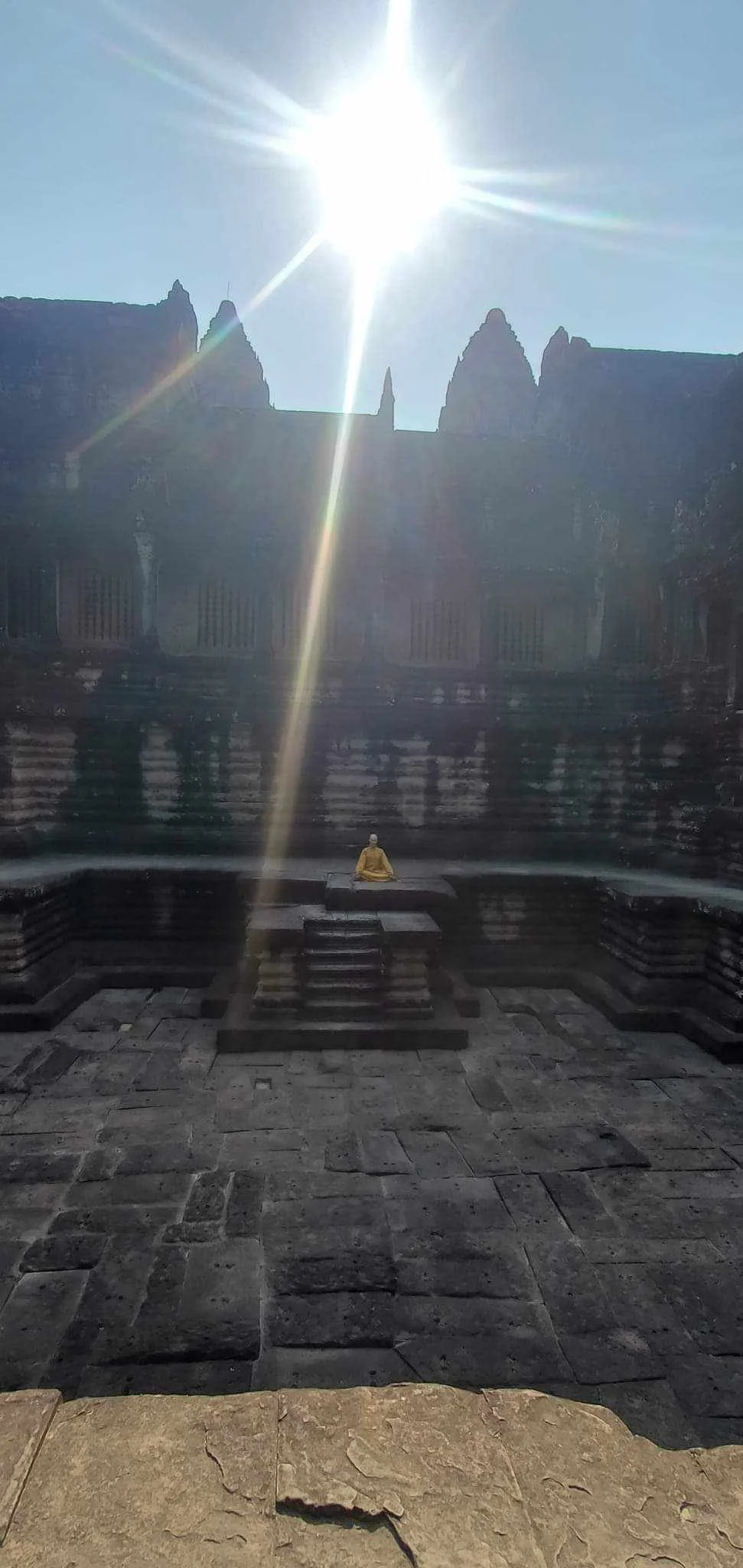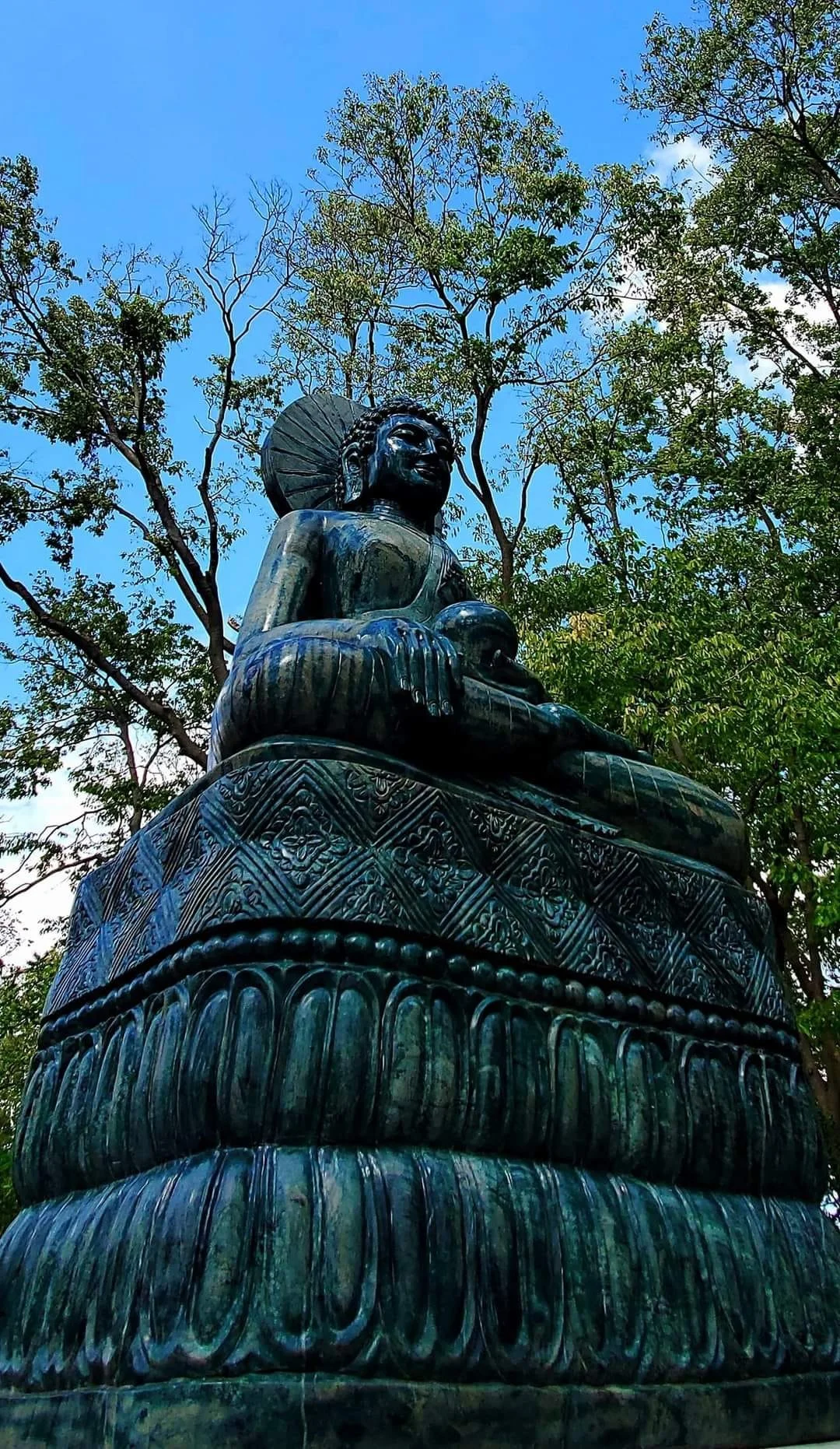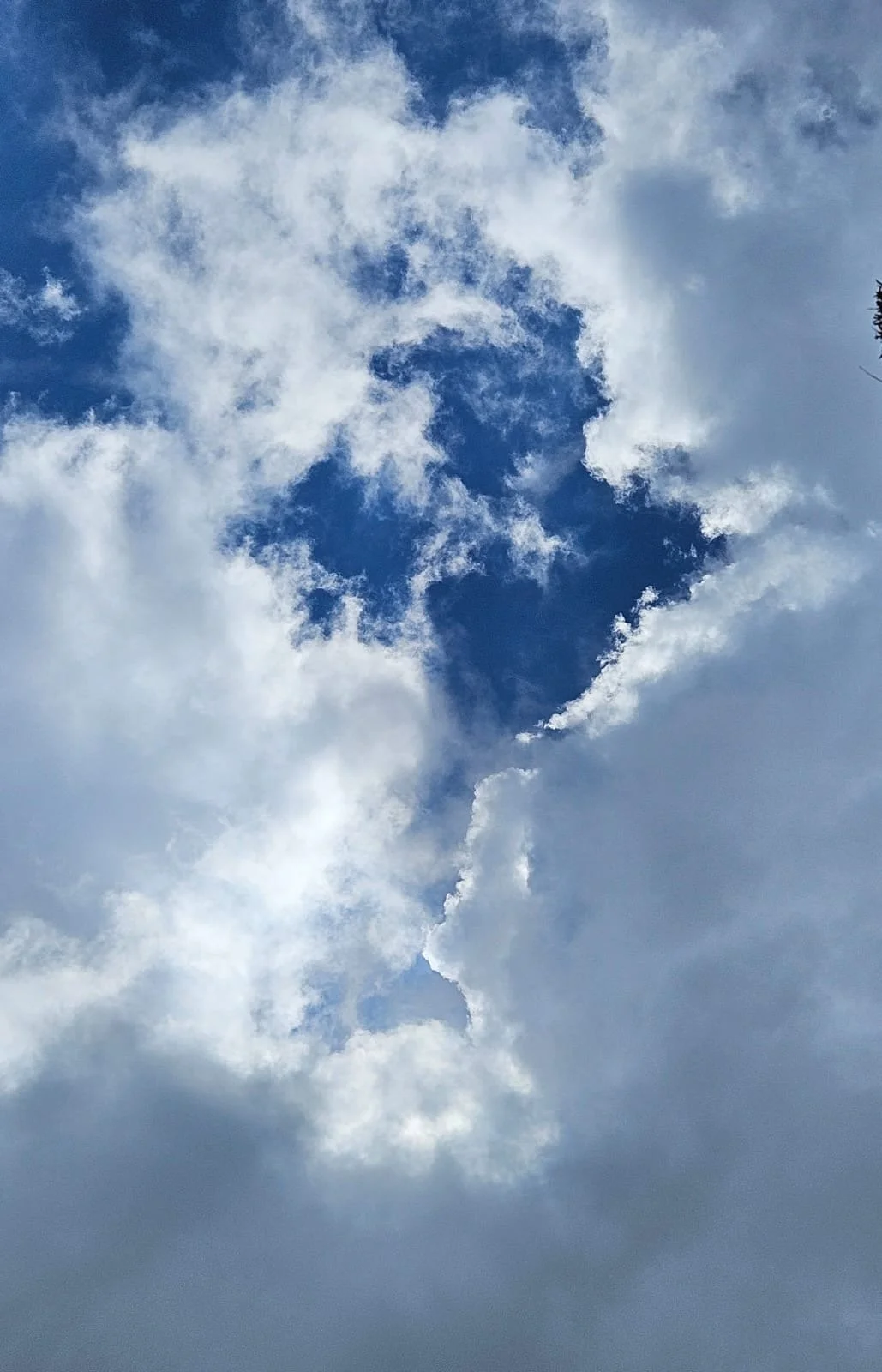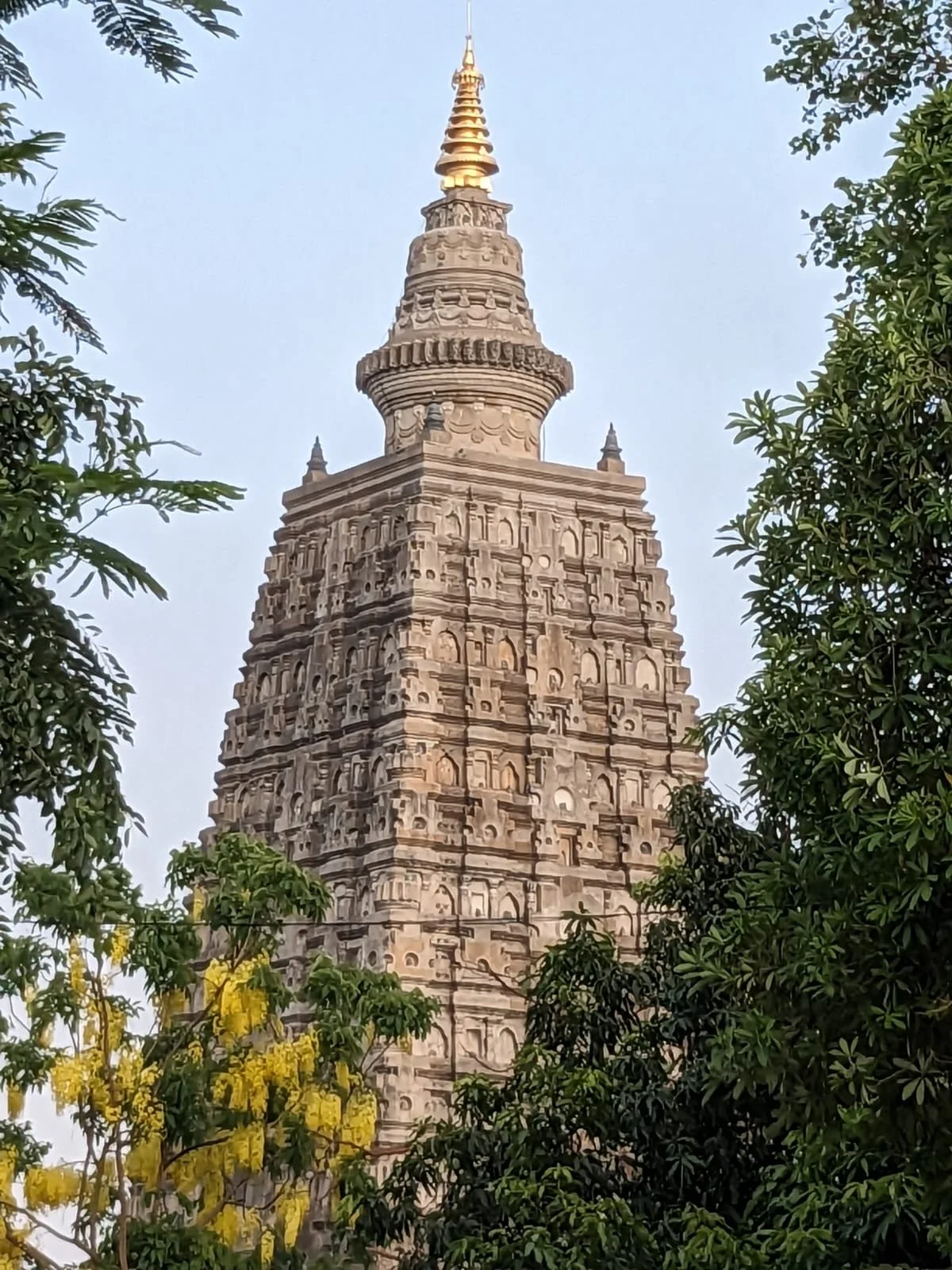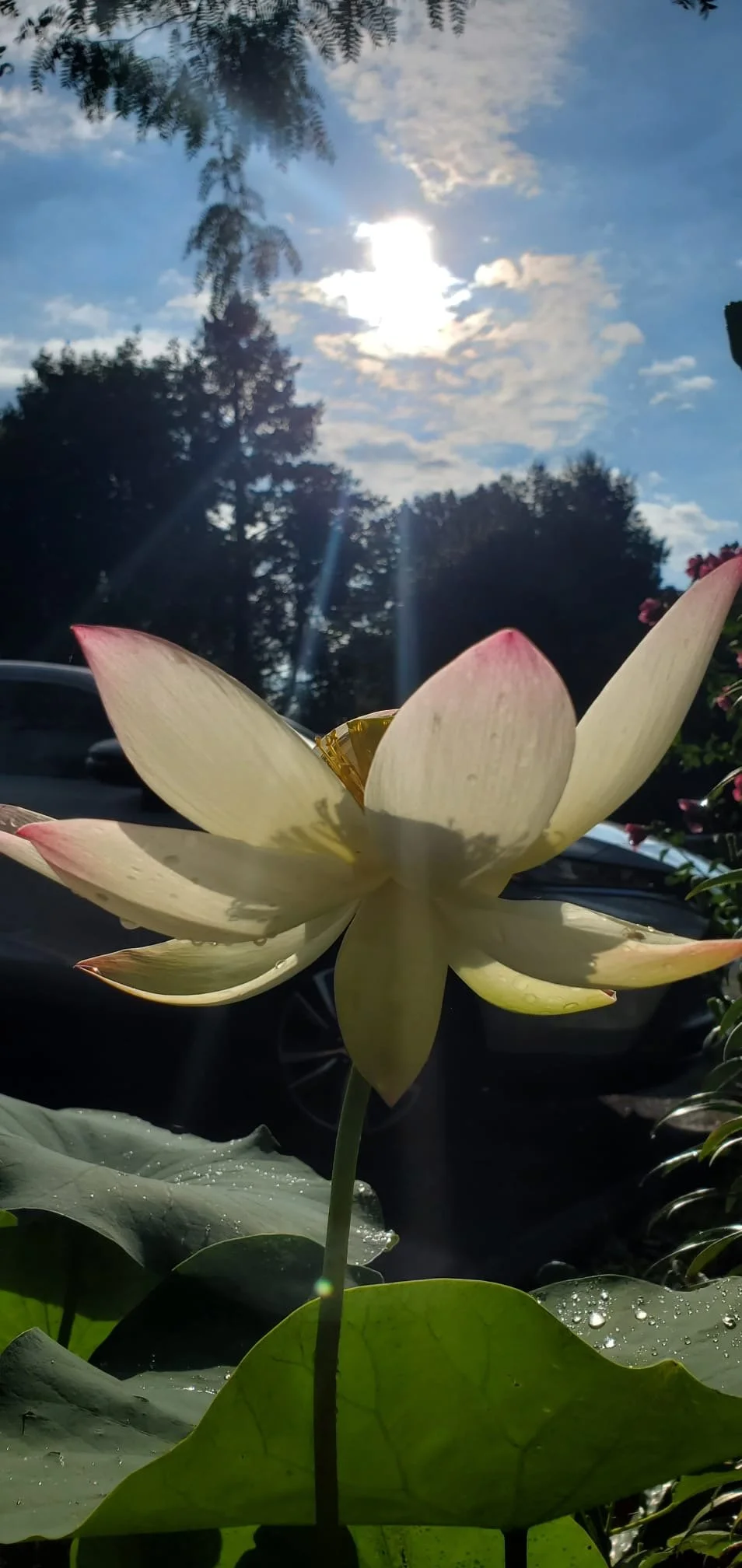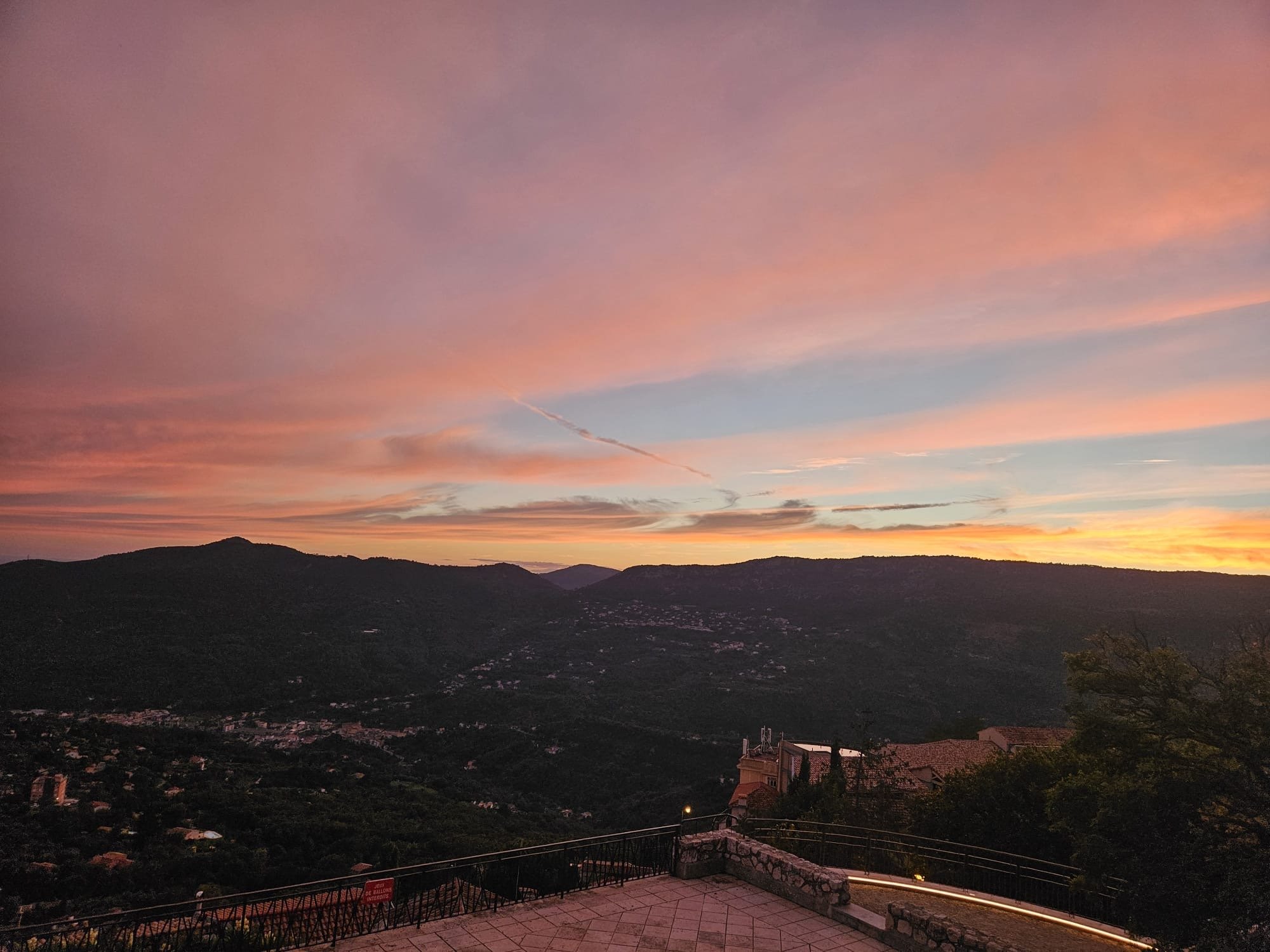Thoughts,Words
and Actions,
To Live By

Buddha’s Four Noble Truths
Life has inevitable suffering
There is a cause to our suffering
There is an end to suffering
The end to suffering is contained in The Noble Eight Fold Path


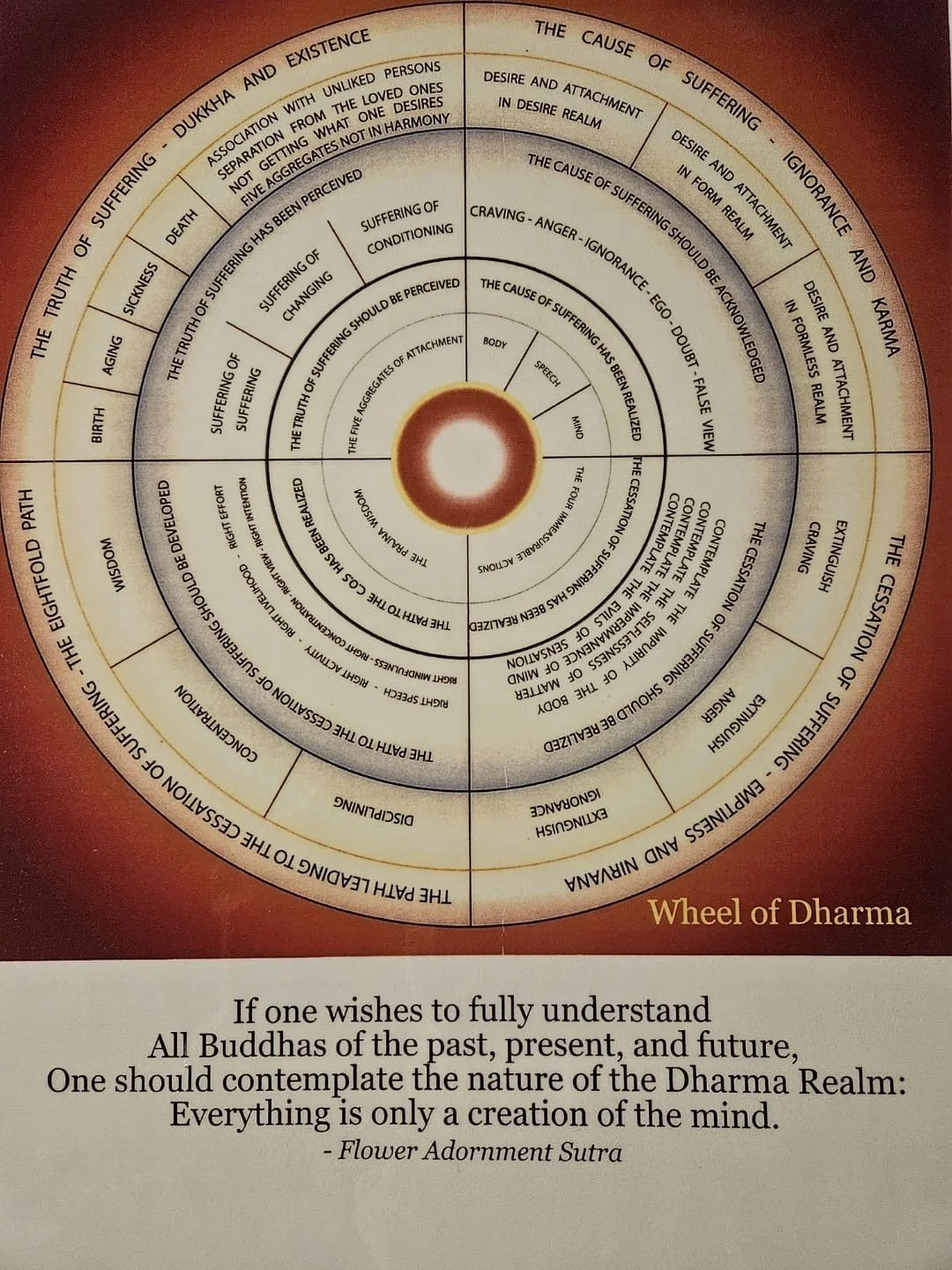
The Fire Sermon
In the Suttas, the Fire Sermon is the third discourse delivered by the Buddha several months after his enlightenment, on top of the Gayasisa Hill, near Gaya, India. He delivered it to a thousand newly converted ascetics who formerly practiced a sacred fire ritual.
Having led the thousand bhikkhus monks to Gaya’s Head, the Blessed One reflected, “What kind of Dhamma talk would be suitable for them?” He then realized, In the past they worshipped the fire morning and night. I will teach them that the twelve sense bases are burning and ablazing. In this way they will attain arahanship.
In the discourse, the Buddha describes the sense bases and resultant mental phenomena as burning with passion, aversion, delusion and suffering. Seeing such, a noble disciple becomes disenchanted with, dispassionate toward and thus liberated sense bases, achieving arahantship.
Bhikkhus, all is burning
Sabbam bhikkhave Adittam.
The ensuing text reveals all (sabba) refers to:
* the six internal senses, the six external senses, consciousness, the contact, what is subsequently felt: pleasure, pain, or neither.
By burning ( Aditya) is meant:
The fire of passion, the fire of aversion, delusion, the manifestation of suffering: birth, aging, and death, sorrows, lamentations, pains, distresses, and despairs.
*******
Adittapariyaya Sutra: The Fire Sermon
Thus I have heard. On one occasion, the Blessed One was living in Gaya, at Gayasisa, together with a thousand bhikkhus. There he addressed the bhikkhus.
Bhikkhus, all is burning. And what is all that is burning ?
The eye is burning, forms are burning, eye- consciousness is burning, eye-contact is burning, also whatever is felt as pleasant or painful or neither- painful -nor- pleasant that raises with eye- contact for it’s indispensable condition, that too is burning. Burning with what? Burning with the fire of lust, with the fire of hate, with the fire of delusion. I say it is burning with birth, aging and death, with sorrows, with lamentations, with pains, with griefs, with despairs.
The ear is burning, sounds are burning…
The nose is burning, odors are burning…
The tongue is burning, flavors are burning…
The body is burning, tangibles are burning…
The mind is burning, ideas are burning, mind- consciouness is burning, mind- contact is burning, also whatever is felt as pleasant or painful- or- neither- painful - nor- pleasant that arises, with mind- contact for it’s indispensable condition, that too is burning. Burning with what? Burning with the fire of lust, with the fire of hate, with the fire of delusion. I say it is burning with the fire of birth, aging and death, with lamentations, with pains, with griefs, with despairs.
Bhikkhus, when a noble follower who has heard ( the truth) sees thus, he finds estrangement in the eye, finds estrangement in forms, finds estrangement in eye- consciousness, finds estrangement in eye- contact, and whatever is felt as pleasant or painful or neither - painful - nor pleasant that arises with eye- contact for it’s indispensable condition, in that too he finds estrangement.
He finds estrangement in the ear …in sounds…
He finds estrangement in the nose … in odors…
He finds estrangement in the tongue… in flavors…
He finds estrangement in the body… in tangibles…
He finds estrangement in the mind, finds estrangement in ideas, finds estrangement in mind- consciousness, finds estrangement in mind- contact, and whatever is felt as pleasant or painful or neither painful -nor- pleasant that arises with mind- contact for it’s indispensable condition, in that too, he finds estrangement.
When he finds estrangement, passion fades out. With the fading of passion, he is liberated. When liberated, there is knowledge. He understands: Birth is exhausted, the holy life has been lived out, what can be done is done, of this there is no more beyond.
That is what the Blessed One said: The bhikkhus we’re glad and they approved his words.
Now during his utterance, the hearts of those thousand bhikkhus were liberated from taints through clinging no more.
Old Age - The Dhammapada
Why the laughter, why the joy,
When flames are ever burning?
Surrounded by darkness,
Shouldn’t you search for light?
Look at the beautiful body:
A mass of sores propped up,
Full of illness, [the object] of many plans,
With nothing stable or lasting.
This body is worn out-
So fragile, a nesting ground for disease.
When life ends in death,
This putrid body dissolves.
What is the delight
In seeing these dull-white bones
Tossed away
Like white gourds in autumn?
This city is build of bones,
Plastered with blood and flesh,
And filled with
Age, death, conceit, and hypocrisy.
Even the splendid chariots of the royalty wear out.
So too does the body decay.
But the Dharma of the virtuous doesn’t decay
[For it is upheld when] the virtuous teach [it] to
Good people.
The person of little learning
Grows old like an ox;
The flesh increases,
But insight does not.
Through many births
I have wandered on and on,
Searching for, but never finding
The builder of [this] house.
To be born again and again is suffering.
House-builder, you are seen!
You will not build a house again!
All the rafters are broken,
The ridgepole destroyed;
The mind, gone to the Unconstructed,
Has reached the end of craving!
Those who have never lived a chaste life
Nor gained wealth in their youth
Waste away like frail herons
In a lake devoid of fish.
Those who have neither lived the chaste life
Nor gained wealth in their youth
Lie around like [arrows misfired] from a bow,
Lamenting the past.
The Great Ultimate Wisdom Heart Sutra
As the Great Free Reflection Bodhisattva practiced profoundly the Great Ultimate Wisdom, he realized that all five aggregates were empty; thus, he overcame all suffering and distress.
Listen, Sariputra! Form does not differ from Emptiness, nor Emptiness differ from form. Form is emptiness, Emptiness is form. The same is true of feelings, perceptions, mental formations and consciousness.
Listen Sariputra! The Emptiness of all phenomena does not come into being or cease to be, is not pure or impure, does not increase or decrease.
Therefore, in Emptiness there is no form, no feeling, no perception, no mental formation, no consciousness.
There is no eye, no ear, no nose, no tongue, no body, no mind; no form, no sound, no smell, no flavor, no tactile object, no mental object, no realm of eye- consciousness, even up to no realm of mind- consciousness; no ignorance, also no extinction of ignorance , even up to no aging and death, also no extinction of aging and death. There is no suffering, no origin of suffering, no cessation of suffering, no path; no wisdom, also no attainment.
Because there is nothing to attain, the Bodhisattvas rely on the Great Ultimate Wisdom and have no obstruction in their mind. Because there is no obstruction, they have no fear, and thus rise far beyond all illusions and reach Perfect Nirvana.
All Buddhas of the three times also rely on the Great Ultimate Wisdom and attain Supreme Enlightenment.
Know that the Great Ultimate Wisdom is the great spiritual mantra, the great illuminating mantra, the supreme mantra, the great unequalled mantra that destroys all suffering, is eternally true, not false.
Therefore, proclaim the Great Ultimate Wisdom Mantra. Proclaim the mantra which says:
Gone, gone, gone beyond,
Gone altogether beyond,
Oh, what an awakening!
(3 times)
Repentance Verses
Gathering before the Buddha’s altar,
with upmost sincerity and deep respect,
we bow to
the Buddhas in the ten directions,
Boddhisattvas in the three times,
Hearers, Solitary Buddhas, Saints and Sages.
Please come and witness the declaration
of our transgressions:
We have committed countless misdeeds
In our numerous lifetimes,
by the actions of the three karmas.
We have been floating and sinking,
drifting aimlessly in the Three Realms,
committing innumerable sins
without intent to stop.
Now that we have awakened, we repent;
We feel great shame and remorse
for all our wrongdoings.
May the Buddhas certify our repentance,
Bodhisattvas and Hearers support and guide us,
so that our past misconduct will melt away
like dew and snow in the morning sun.
At present, as we are living now,
Though we have the auspicious opportunity
to learn the Buddha’s Teachings,
We accumulate much vengeful karma.
We are still fostering greed, egotism,
anger, ignorance, envy, evil
and unknowing conduct;
fabricating and telling lies,
deceiving, speaking evil and unjust words;
killing and injuring other beings,
such is our body karma;
we hurt living beings for our own benefits;
The Three Jewels, please
witness our repentance!
We vow to stop our continuously sinful mind
from the moment,
never again to commit even the slightest sins
and keep our three karmas as pure as snow.
We vow to attain the true tradition of direct
and comprehensive Teachings,
to recognize our complete and radiant nature,
the Suchness of our mind.
Our illusory emotions and all external objects
are just like clouds and smoke.
Karmic consciousness being empty,
Wisdom will shine.
Knowing that Birth is Non- Birth and transcending
Death without hindrances,
we will freely exit and enter the Three Realms
to save sentient beings.
We steer the boat of compassion without rest,
to bring all beings to the shore of Enlightenment.
May we dedicate the merit of our practice ,
so all living beings will reach Nirvana.
Entering the Buddha’s Home,
we sit on the Precious Throne,
Wearing the Thus Come One’s Robe,
we attain the Dharma Body.
May we altogether generate Bodhicitta
without regressing mind,
recognize Birthlessness
and the true Dharma Realm.
May we altogether reach Buddhahood,
achieve miraculous Enlightenment
and merge into true Suchness,
complete and radiant Nature.
Dangers of negativity.
Lord Buddha: Astonishing as it may sound, Prajnaparamita is so exalted and so radical that some mind streams may not be able to develop total faith and confidence in Perfect Wisdom, even though they have practiced contemplative life under the direct guidance of hundreds of Buddhas during past aeons- or even in the inspiring presence of thousands of past Buddhas, or hundreds of thousands of past Buddhas.
The reason is simple. Even though the reverence and commitment of these aspirants was strong, when the Buddhas of past eons began to expound Prajnaparamita, the most radical teaching of truth, these practitioners did not cherish profound respect for Perfect Wisdom, much less did they fully understand it. Because intense respect and veneration was lacking, they didn’t have the necessary burning desire to learn more about Perfect Wisdom, nor did they generate the longing necessary to assimilate and realize it. Since they did not honor it above all other teachings of the Buddhas, they did not develop the adamantine intention to pose penetrating questions about Perfect Wisdom.
Some of those who lacked faith in Prajnaparamita even walked out of the radiant Buddha assemblies where this unthinkable precious teaching was being expounded. Because from the distant past such practitioners have gradually accumulated this habitual energy ruinous to faith in Prajnaparamita, they also walk out of assemblies in the present whenever the depth of unthinkability is being presented. Without instinctive respect, heartfelt faith and total intellectual confidence in Prajnaparamita, the body and mind of practitioner subtly fall out of harmony. This creates a circular self- imprisonment, for without sensitivity and harmony of awareness, it is difficult to even hear the Perfection of Wisdom, much less to understand it intimately, transmit it and thereby deepen one’s spiritual connection with it.
From the lack of reverence for Prajnaparamita, follows a loss of the ability to hear the wisdom teaching clearly. After this, one’s overall vision of Dharma begins to dim and one ceases to be able to recognize the radical teaching of truth, even when they are clearly unfolded.
Through this process, one gradually and almost imperceptibly accumulates habitual energy which runs counter to contemplation and penetration. Lacking the energy of contemplative practice, the previous experience of transcendent insight is seriously weakened. This weakening inevitably causes careless practitioners at first to resist and then to reject or even revile Prajnaparamita, the essence of spiritual path. They may even walk out of an assembly where Perfect Wisdom is being expounded and demonstrated. By negating the Perfection of Wisdom, such disintegrating practitioners become involved in the total absurdity of negating the clear and limitless knowledge unveiled by all past, present and future Buddhas. Such a negation can threaten the continuity and integrity of contemplative practice on less advanced levels of teachings as well.
This rebellion against the subtle kindness of Mother Prajnaparamita can be further compounded by the mad attempt to poison the minds of vulnerable persons, turning them away from transcendent insight. These persons may possess less native intelligence: their experience of insight may not yet be strong; they may be lacking somewhat in the meritorious energy brought about good actions and intentions; or their faith may be somewhat tenuous.
Such vulnerable persons are not yer completely permeated with reverence of truth, serenity of mind and the active commitment to study and contemplate the Perfection of Wisdom. By attacking beginners who are just developing the extensive qualifications to approach Prajnaparamita, those who negate Perfect Wisdom with blasphemous assertion that it is not the highest teaching of all the buddhas dissipate their own precious mind streams. To attack Prajnaparamita is to attack omniscience. It is an attempt to discredit the Awakened Ones of past, present and future. By adopting this extreme course of thought and action, negative mind streams remove themselves from the living presence of the Buddha, deprive themselves of the healing and illumination of the Dharma, and excommunicate themselves from the spiritual friendship and support of the Sangha, the community of sublime lovers of Perfect Wisdom.
These rebellious ones gradually become disassociated in every dimension of their being from the Triple Gem of Buddha, Dharma and Sangha, which consists of Awakened Enlightenment, its teachings and its practitioners. Because the thoughts and actions of these increasingly negative persons both subtly and openly diminish the goodness of other beings, they gradually accumulate habitual energy which creates the conscious environment called hell.
A hellish consciousness feeds on itself and inevitably generates even more extreme conditions of rebellion- a process which may extend within a particular mind stream for hundred of years. Then, reaching an even more critical level of negativity, this hell consciousness can become demonic, persisting through thousands of aeons- a bitter karma extending not only across generations but also throughout creation and final dissolution in fire of entire world systems.
Its subtle tendencies may even persist into fresh universes, as a poisonous stream of unimaginable anger, hatred and pain. There are future Maras as well as future Buddhas.
Meditation on The Prajnaparamita Sutra
The Heart Sutra
To the inconceivable, inexpressible Prajnaparamita,
Unborn, unceasing with nature like space
Which is experienced by self-awareness
Discerning pristine cognition to the Mother of the Victorious Ones of the Three Times,
I pay homage.
Thus I have heard:
At one time the blessed One was abiding in Vulture’s Peak in Rajagiraha
Together with a great assembly of bhikshus and a great assemble of Boddhisattvas
That time the Blessed One was absorbed in the samadhi called profound illumination.
Also at that time was the Bodhisattva Mahasattva Arya Avalokitesvara
Was reviewing the profound characteristics of the Prajanaparamita
And realized the natural emptiness of the five aggregates.
Then through the blessing of the Buddha, the elder Shariputra asked Arya Avalokitesvara:
How should one of noble lineage train who wishes to practice the Profound Perfection of Wisdom?
The Arya Avalokitesvara the Boddhisatva Mahasattva replied to the elder Shariputra.
Shariputra, those of noble lineage who wish to practice the profound Perfection of Wisdom
should correctly view the five aggregates as empty of inherent existence, form is empty, emptiness is also form, form is no other than form, form is not other than emptiness, in the same way feeling, perception, mental formations and consciousness are empty.
Noble Shariputra, all charms are empty and have no characteristics. They are unborn and unceasing and defiled and unpurified, neither decreasing nor increasing, therefore Shariputra, in emptiness there no form, no feeling, no perception, no mental formations, no consciousness, no eye, no ear, no nose, no tongue, no body, no mind, no form, no sound, no smell, no taste, no touch, no Dharma.
Consequently, there is no Eye element, and so forth, up to mind element, nor mind consciousness element, there is no ignorance, no elimination of ignorance, up to old age and death, nor the elimination of old age and death.
In the same way, there is no suffering, no cause of suffering, no cessation, no path, no primordial wisdom, no attainment, and no non-attainment. Therefore Shariputra, since Bodhisattvas have no attainment, they depend on and abide in the Perfection of Wisdom, the Prajnaparamita.
Since their minds have no obscurations, they have no fear, they have gone beyond all deception and have attained the complete state of Nirvana.
All the Buddhas of the Three Times have fully realized the perfect complete and unsurpassed state of enlightenment by relying on this Perfection of Wisdom.
Therefore this is the Perfection of Wisdom. The Mantra of great knowledge, the unsurpassed Mantra, the unequaled Mantra, the Mantra which pacifies all suffering . It is not false, so it should be known as the truth, the Mantra of perfection of Wisdom Prajnaparamita is proclaimed:
Tadyatha Om Gate, Gate, Para Gate, Para Samgate Bodhi Svaha.
One of the noble lineage should engage in the practice of the Perfection of Wisdom in this way.
The Blessed One arose from the samadhi of profound illumination and said to the mighty Avalokitesvara,
Well done, well done.
One of noble lineage it is just so. The practice of perfection od Wisdom should be practiced just as you have explained and all the Tathagathas will rejoice.
After the Blessed One had spoken, the Elder Shariputra the Arya Avalokiteshvara, along with all the Assemblies of humans, gods, demigods and gandarvas rejoiced and praised the word of the Buddha.
Tadyatha Om Gate Gate Para Gate Para Samgate Bodhi Svaha
Om Gate Gate Para Gate Para Samgate Bodhi Svaha
Om Gate Gate Para Gate Para Samgate Bodhi Svaha
I
Discourse on the Teachings to be Given to the Sick
I heard these words of the Buddha one time when the Lord was staying in the monastery in the Jeta Grove in Anathapindika’s park, near Shravasti.
At that time the householder Anathapindika was seriously ill. When the Venerable Shariputra was told this, he immediately went to Ananda and said, “Brother Ananda, let us go and visit layman Anathapindika.” The Venerable Ananda said: “Yes, let us go now.”
The Venerable Ananda put on his robe, took his bowl, and went into the town of Shravasti with Venerable Shariputra to make the alms round. Ananda walked behind Shariputra stopping at every house until they came to the house of the layman Anathapindika, and they went in to visit him.
After he had sat down, the Venerable Shariputra asked the layman Anathapindika: How is your illness? Is it getting better or worse? Is the physical pain easing at all or is it getting greater?” The householder Anathapindika replied, “ Venerable monks, it does not seem to be getting better. The pain is not easing. It is getting greater all the time. Shariputra said: “ Friend Anathapindika, now it is the time to practice the meditation on the Three Jewels, the Buddha, the Dharma and the Sangha.
The Buddha has gone to Suchness, is fully and truly awakened, has perfected understanding and action, has arrived at true happiness, understands the nature of the world, is unequalled in understanding, has conquered the affections of human beings, is a teacher of gods and humans, and is the Awakened One, the One who liberates the world.
The Dharma is the teaching of love and understanding that the Tathagata has expounded. It is deep and lovely worthy of the highest respect, and very precious. It is the teaching that cannot be compared to ordinary teachings. It is the path if practice for the Noble Ones.
The Sangha is the community of practice, guided by the teachings of the Awakened one. The community is in harmony, and within it all aspects of the practice can be realized. The community is respected and precious. It practices the precepts and realizes concentration, insight, and liberation. Offerings made to the sangha are very beneficial.
"Friend Anathapindika, if you meditate in this way on the Buddha, the Dharma and the Sangha, the beneficial effects are beyond measure. Meditating in this way, you can destroy the obstacles of wrong deeds and afflictions. You can harvest a fruit that is as fresh and sweet as the balm of compassion.
A woman or a man practicing an upright way of life who knows how to meditate on the Three Jewels will have no chance of falling into the three lower realms but will be reborn as a human or a god.
“Friend Anathapindika, now is the time to practice the meditation on the Six Sense Bases:
“These eyes are not me. I am not caught in these eyes.
"These ears are not me. I am not caught in these ears.
"This nose is not me. I am not caught in the nose.
"This tongue is not me. I am not caught in this tongue.
"This body is not me. I am not caught in this body.
“This mind id not me. I am not caught in this mind.
"Now continue your meditation with the Six Sense Objects:
“These forms are not me. I am not caught in these forms.
“These sounds are not me. I am not caught in these sounds.
“These smells are not me. I am not caught in these smells.
“These tastes are not me. I am not caught in these tastes.
“These contacts with the body are not me. I am not caught in these contacts with the body.
"These thoughts are not me. I am not caught in these thoughts.
“Now continue your meditation on the Six Sense Consciousnesses:
“Sight is not me. I am not caught in sight.
"Hearing is not me. I am not caught in hearing.
“Consciousness based on the nose is not me. I am not caught in the consciousness based on the nose.
“Consciousness based on the tongue is not me. I am not caught in consciousness based on the tongue.
“Consciousness based on the body is not me. I am not caught in the consciousness based on the body.
“Consciousness on the mind is not me. I am not caught in the consciousness based on the mind.
“Now continue your mediation on the Six Elements:
“The earth element is not me. I am not caught in the earth element.
“The water element is not me. I am not caught in the water element.
“The fire element is not me.I am not caught in the fire element.
“The air element is not me. I am not caught up in the air element.
“The consciousness is not me. I am not caught up in the consciousness element.
“Now continue your mediation in the Five Aggregates:
“Form is not me. I am not limited to the form aggregate.
“Feelings is not me. I am not caught to the feeling aggregate.
“Perceptions are not me. I am not caught to the perception aggregate.
“Mental formations are not me. I am not limited to the mental formation aggregate.
“Consciousness is not me. I am not limited to the consciousness aggregate.
“Now continue your meditation on the Three Times:
“The past is not me. I am not limited by the past.
“The present is not me. I am not limited by the present.
“The future is not me. I am not limited by the future.
“Friend Anathapindika, everything that arises is due to causes and conditions. Everything that is, has the nature not to be born and not to die, nor to arrive and not to depart. When eyes arise, they arise, but they do not come from anywhere. When eyes cease to be, they cease to be but they do not go anywhere. Eyes are neither nonexistent before they arise, nor are they existent after they arise. Everything that is, comes to be because of a combination of causes and conditions. When the causes and conditions are sufficient, eyes are present. When the causes and conditions are not sufficient, eyes are absent. The same is true of ears, nose, tongue, body and mind: the Six Elements, the Five Aggregates and the Six Times.
“In the Five Aggregares, there is nothing that I can call ”I,” a “ person” or a “soul.” Ignorance is the inability to see the truth. Because there is ignorance, there are mistaken impulses, Because there are mistaken impulses, there is mistaken consciousness. Because there is mistaken consciousness, there is distinction between the perceiver and the perceived. Because there is distinction between the perceiver and the perceived, there is a distinction between the six organs and the six objects of sense. Because there is the distinction between the six organs and the six objects of sense, there is contact. Because there is contact, there is feeling. Because there is feeling, there is thirst. Because there thirst, there I grasping. Because there is grasping, there is becoming. Because there is becoming, there are birth, death, and the subsequent pain and grief.
“Friend Anathapindika, you have meditated that everything that arises is due to causes and conditions and does not have a separate self. That is called “the mediation on emptiness.” It is the highest and the most profound meditation.”
When he had practiced to this point, the layman Anathapindka began to cry. Venerable Ananda asked him, “Friend why are you crying? Has your meditation not been successful? Do you have some regret? The layman Anathapindika replied, “Venerable Ananda, I do not regret anything. The meditation has been most successful. I am crying because I am deeply moved. I have been fortunate to have been able to serve the Buddha and his community for many years, yet I have never heard a teaching so wonderland and precious as the teaching transmitted by the Venerable Shariputra today.”
Then the Venerable Ananda said to the layman Anathapindika, “Do you not know, friend, that the Buddha often gives the teaching to the bhikshus and bhikshunis?" The layman Anathapindika replied: “Venerable Ananda, please tell the Buddha that there are also laypeople with the capacity to listen, understand and put into practice these deep and wonderful teachings.”
After hearing Shariputra’s instructions and meditating accordingly, Anathapindika felt free and at ease. The Venerables Shariputra and Ananda bade him farewell and went back to the monastery, and Anathapindika passed away and was born in the thirty-third heaven.
Ekottara Agama LI, 8
(In consultation with Majjhima Nikaya 143 )
Discourse On The Middle Way
I heard these words of the Buddha one time when the Lord was staying at the guest house in a forest on the district of Nala.
At that time, the Venerable Kaccayana came to visit him and asked, “ The Tathagata has spoken of the Right View. How would the Thatagata describe Right View?’
The Buddha told the venerable monk, People in the world tend to believe in one of two views: the view of being or the view of nonbeing. That is because they are bound to wrong perception. It is wrong perception that leads to the concepts being and nonbeing.
Kaccayana, most people are bound to the internal formations of discrimination and preference, grasping and attachment. Those who are not bound to the internal knots of grasping and attachment no longer imagine and cling to the idea of a self.
They understand for example, that suffering comes to be when conditions are favorable, and that it fades away when conditions are no longer favorable. They no longer have any doubts. Their understanding has not come to them through others; it is their own insight. This insight is called Right View, and this is the way the Tathagata would describe Right View.
“ How is it so? When a person who has correct insight observes the coming of the world, the idea of nonbeing does not arise in her, and when she observes the fading away of the world, the idea of being does not arise in her mind. Kaccayana, viewing the world as being is an extreme, viewing it as nonbeing is another extreme. The Tathagata avoids these two extremes and teaches the Dharma dwelling in the Middle Way.
The Middle Way says this is, because that is, this is not because this is not. Because there is ignorance, there are impulses, because there are impulses, there is consciousness, because there is consciousness, there’s the psycho- soma; because thee is psycho-soma, there are the six senses; because there are the six senses, there is contact; because there is contact, there is feeling; because there is feeling, there is craving; because there is craving, there is grasping; because there is grasping, there is becoming; because there is becoming, there is birth, because there is birth, there is old age; because there is old age, death, grief and sorrow. That is how the entire mass of suffering arises. But with the fading away of ignorance, impulses cease; with the fading away of impulses, consciousness ceases;… and finally birth, old age, death, grief and sorrow will fade away. That is how the entire mass of suffering ceases.”
After listening to the Buddha, the Venerable Kaccayana was enlightened and liberated from sorrow. He was able to untie all of his internal knots and attain Arhatship.
Samyukta Agama 301
Discourse on the Middle Way.
I heard these words of the Buddha one time when the Lord was staying at the guest house in a forest on the district of Nala.
At that time, the Venerable Kaccayana came to visit him and asked, “ The Tathagata has spoken of the Right View. How would the Thatagata describe Right View?’
The Buddha told the venerable monk, People in the world tend to believe in one of two views: the view of being or the view of nonbeing. That is because they are bound to wrong perception. It is wrong perception that leads to the concepts being and nonbeing.
Kaccayana, most people are bound to the internal formations of discrimination and preference, grasping and attachment. Those who are not bound to the internal knots of grasping and attachment no longer imagine and cling to the idea of a self.
They understand for example, that suffering comes to be when conditions are favorable, and that it fades away when conditions are no longer favorable. They no longer have any doubts. Their understanding has not come to them through others; it is their own insight. This insight is called Right View, and this is the way the Tathagata would describe Right View.
“ How is it so? When a person who has correct insight observes the coming of the world, the idea of nonbeing does not arise in her, and when she observes the fading away of the world, the idea of being does not arise in her mind. Kaccayana, viewing the world as being is an extreme, viewing it as nonbeing is another extreme. The Tathagata avoids these two extremes and teaches the Dharma dwelling in the Middle Way.
The Middle Way says this is, because that is, this is not because this is not. Because there is ignorance, there are impulses, because there are impulses, there is consciousness, because there is consciousness, there’s the psycho- soma; because thee is psycho-soma, there are the six senses; because there are the six senses, there is contact; because there is contact, there is feeling; because there is feeling, there is craving; because there is craving, there is grasping; because there is grasping, there is becoming; because there is becoming, there is birth, because there is birth, there is old age; because there is old age, death, grief and sorrow. That is how the entire mass of suffering arises. But with the fading away of ignorance, impulses cease; with the fading away of impulses, consciousness ceases;… and finally birth, old age, death, grief and sorrow will fade away. That is how the entire mass of suffering ceases.”
After listening to the Buddha, the Venerable Kaccayana was enlightened and liberated from sorrow. He was able to untie all of his internal knots and attain Arhatship.
Samyukta Agama 301
Extract from
The Sutra of Maitreya Bodhisattva’s Attainment of Buddhahood
At that time Maitreya Bodhisattva, together with 84,000 Brahmins, will go to this mandala.
He will then speak in verse:
‘Long thinking of the suffering of sentient beings
And wanting to rescue them, I was unable to do so.
Today I have attained bodhi.
Suddenly, obstructions are no more.
I have also verified that sentient beings are sunyata,
And that the original nature and appearance are true reality.
My sorrows and sufferings nevermore,
My lovingkindness and compassion are unconditional.
For the sake of rescuing you all,
I have given to innumerable people
My kingdom, my head, my eyes,
My hands, my feet and my wife.
Beginning today are my liberation
And the unsurpassed great silence.
I will expound them to you all
And widely open the Sweet Nectar Way.
Such a fruition of great reward
Is all born from the great endurance in the six paramitas,
Such as almsgiving, observing the precepts, and developing wisdom.
It is acquired also from great lovingkindness and compassion
As well as from untainted virtues’.
Having spoken this stanza, Maitreya Buddha will remain silent. Then, god-kings, dragon- kings, and spirit- kings, without revealing themselves, will rain down flowers as offerings to the Buddha. The Three- Thousand Large Thousandfold World will quake in six ways. The Buddha’s body will emit light, illuminating infinite realms. Those who can be delivered will be able to see this Buddha. At that time, in the Flower Grove Garden, the god- king Sakro- Devanam- Indra, the four god- kings who protect the world, the great Brahma- kings, and the innumerable god- sons will bow down their heads at the feet of the Buddha. Joining their palms, they will request Him to turn the Dharma wheel. At that time, Maitreya Buddha will grant their request in silence. He will tell the Brahma- kings, ‘ In the long night I have undergone great suffering and cultivated the six paramitas. Finally, I have fulfilled the Dharma Ocean today. To pronounce the Dharma to you all, I will rightfully erect the Dharma banner, beat the Dharma drum, blow the Dharma conch shell, and rain down the Dharma rain. None of the gods and humans can turn the Dharma Wheel of the Eightfold Right Path, which can be turned by the Buddhas only. Its meaning is impartial, and it leads straight to the unsurpassed silence of that which is asamskrta. It can enable the sentient beings to end their sufferings in the long night. This Dharma is so profound that it is hard to obtain, hard to enter, hard to believe and hard to understand. No one in the world can know it, or see it. However, through it, one can cleanse one’s mental defilements and acquire myriads of Brahma actions. ‘
As these words were being said, from other worlds, innumerable hundreds, thousands, ten of thousands, and Kori’s of god- sons, goddess- daughters, and great Brahma- kings, riding their celestial palaces will come. Holding celestial flowers, they will offer them to the Tathagata and circumambulate Him hundreds of thousands of times. They will fully prostrate themselves on the ground, and joining their palms, they too will implore this Buddha. The celestial music sounding without being played, the Brahma- kings will speak in one voice, saying in verse:
‘ Without a Buddha,
Immeasurable, uncountable years have passed in waste,
And sentient beings have gone down to evil life- paths.
When the eye of the world is gone,
The three evil life- paths will widen and expand,
And the road to the heavens will be blocked.
Today the Buddha has appeared in the world.
The three evil life- paths will be annihilated
And the multiple of gods and humans will increase.
We pray that You will open the Sweet Nectar Door,
Enabling the minds of sentient beings not to cling,
But to attain nirvana swiftly.
We the Brahma- kings, have heard
That the Buddha has appeared in the world.
Because we now have encountered the Buddha,
The unsurpassed Dharma- king,
The palaces in Brahma Heavens are grander,
And the light of our body becomes brighter.
For the sake of all multitudes in the ten directions,
We implore the great guiding teacher,
Praying that He will open the Sweet Nectar [Door]
And turn the unsurpassed Dharma wheel.’Having spoken this stanza, they again will bow down their heads to the ground. Joining their palms, three times they will ask earnestly, « We pray only that the World-Honored One will turn the profound wondrous Dharma wheel to eradicate the roots of sufferings of sentient beings, enabling them to walk far away from the three poisons and unwholesome deeds and to break away from the four evil life-paths.’

